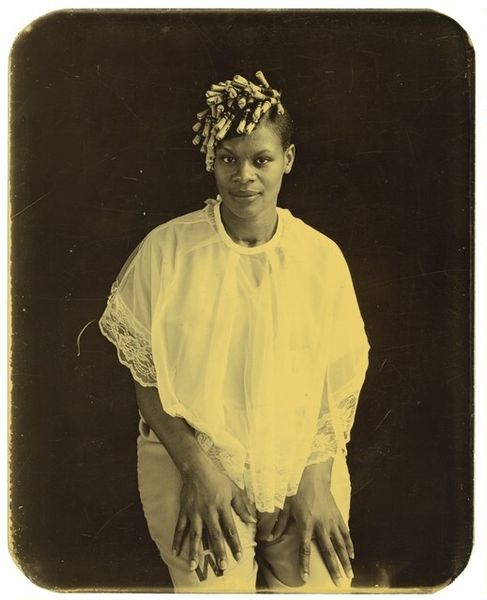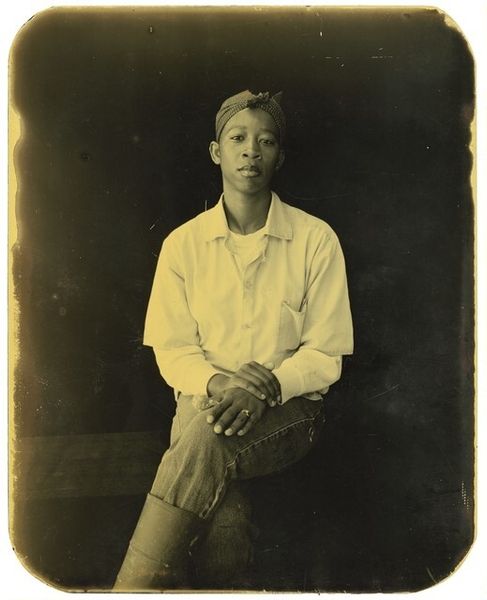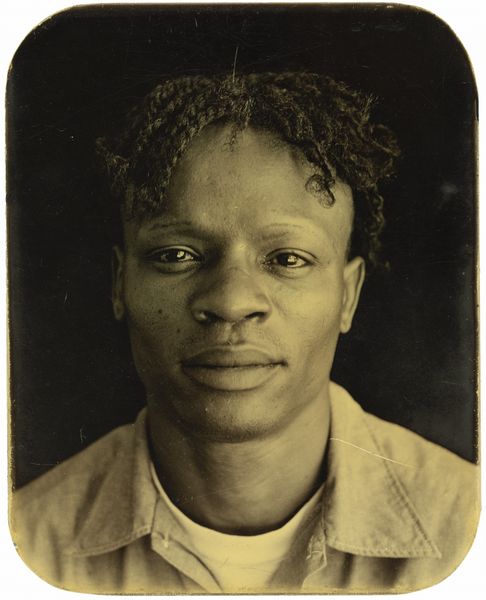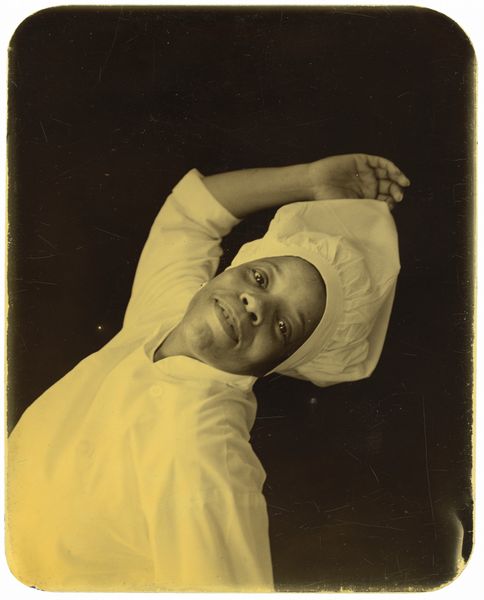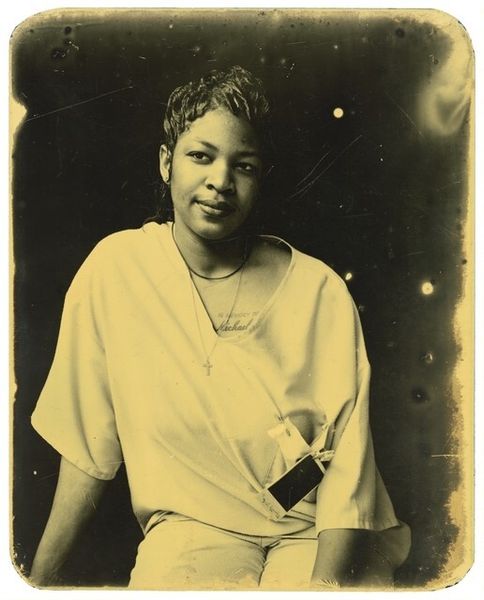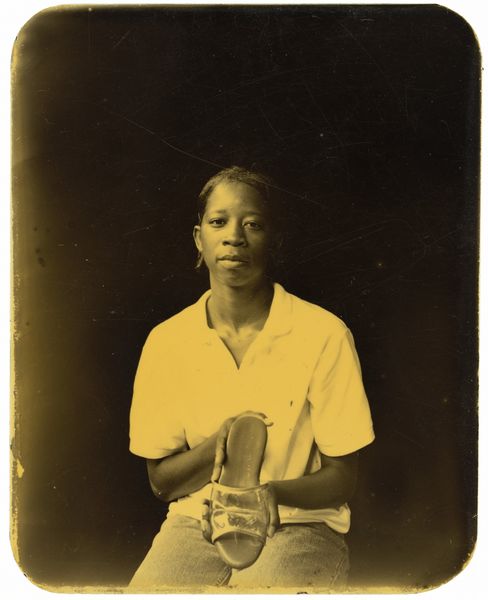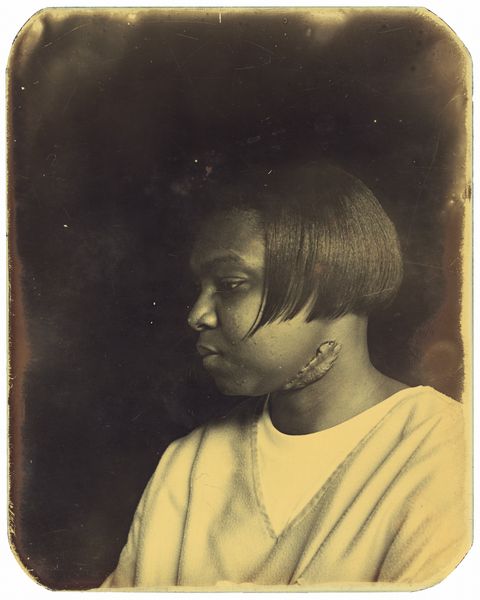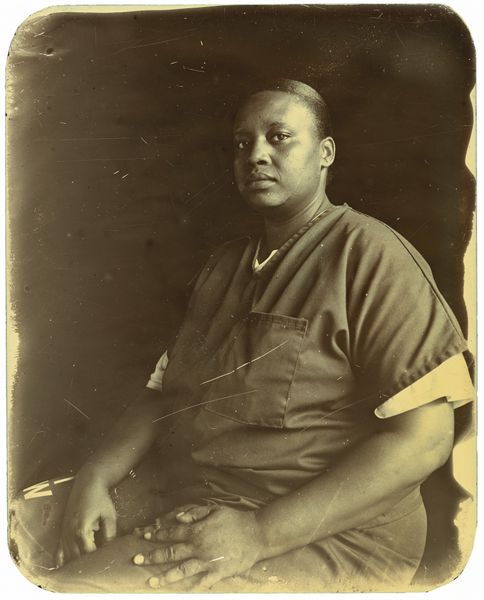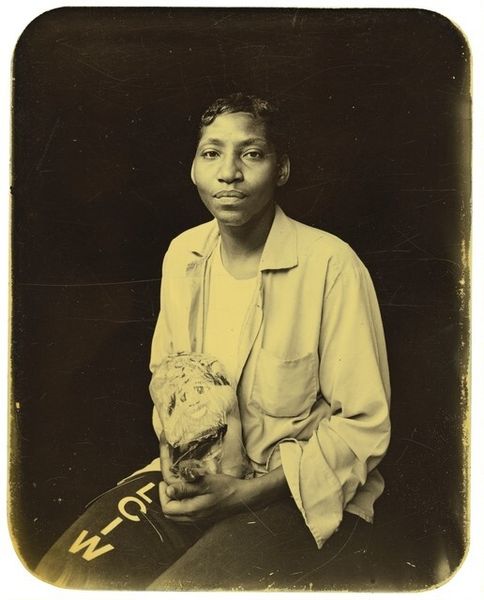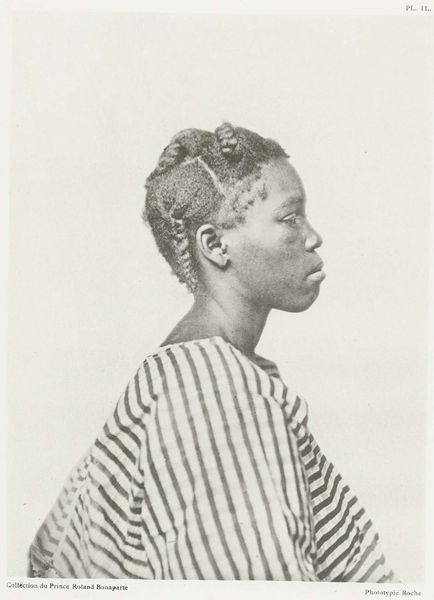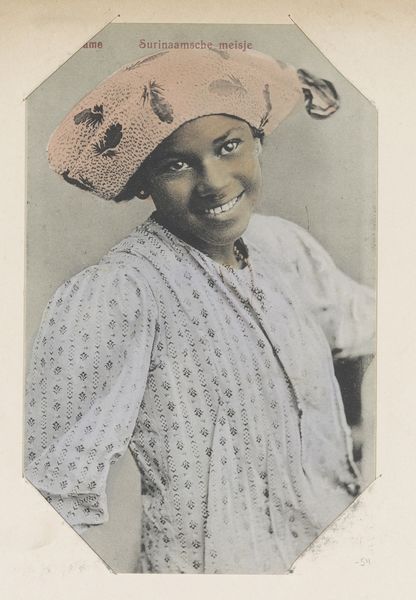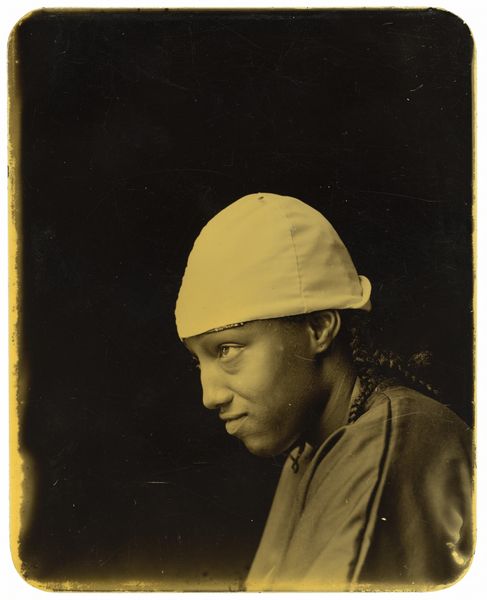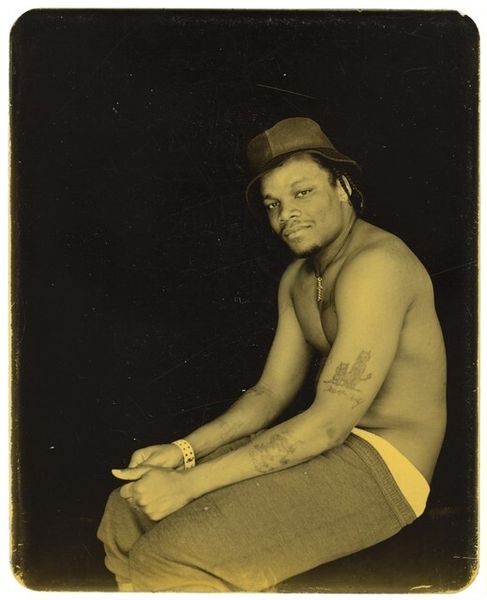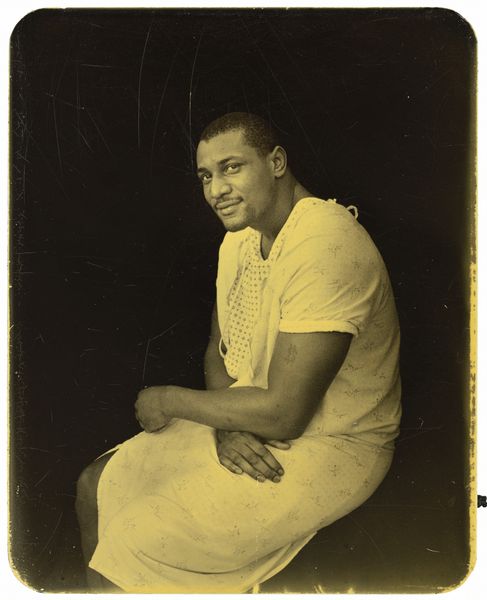
photography, gelatin-silver-print
#
portrait
#
contemporary
#
photography
#
gelatin-silver-print
#
portrait art
#
modernism
#
realism
Dimensions: image/plate: 12.6 × 10.1 cm (4 15/16 × 4 in.)
Copyright: National Gallery of Art: CC0 1.0
Curator: Deborah Luster captured this portrait titled "Angola, Louisiana" in April 1999, utilizing a gelatin-silver print process. It has a certain... weight. Editor: My immediate response is an overwhelming sense of poised vulnerability. His arms are crossed, a gesture of self-protection perhaps, but there's such a disarming openness in his expression, and almost a shy half-smile that counters any defensiveness. Curator: Luster's work often focuses on marginalized communities within the American South, particularly those impacted by the criminal justice system. Consider Angola, the infamous Louisiana State Penitentiary, a former plantation, that embodies a fraught racial and socioeconomic history. Editor: Yes, there’s so much suggested in the stark simplicity here. His slightly downcast gaze – is that a sign of resignation, or perhaps just quiet contemplation? The pen clipped to his pocket becomes almost symbolic – a fragile instrument of potential literacy, or self-expression amidst a bleak context. Is this an intimation that someone’s fate lies in another’s hands? Curator: Precisely, and Luster doesn't romanticize; instead, the picture acts as a quiet testament. We cannot look away from the implications surrounding race, class, and incarceration that continue to structure inequalities. The portrait's very directness challenges assumptions. Editor: Absolutely. And look at the almost antiquarian quality of the gelatin-silver print, giving it this timeless dimension. In turn it elevates the person within the photograph with dignity that transcends his situation – reminding me of old mugshots and the power dynamics intrinsic in portraiture over the ages. This evokes pathos that resonates even now. Curator: It reminds us that these individuals aren’t merely statistics, but possess dignity, humanity and lived experiences worthy of acknowledgement and change. It underscores the urgent necessity for ongoing discourse and reforms within the justice system, resonating with broader issues of social justice. Editor: And to bring that idea back full-circle – it urges viewers to become active participants in decoding complex signifiers surrounding institutional power and its human effect, beyond face value. It is really powerful work. Curator: A poignant observation that reinforces the work's relevance. Editor: Indeed, thank you for bringing this complex portrait to my attention!
Comments
No comments
Be the first to comment and join the conversation on the ultimate creative platform.
